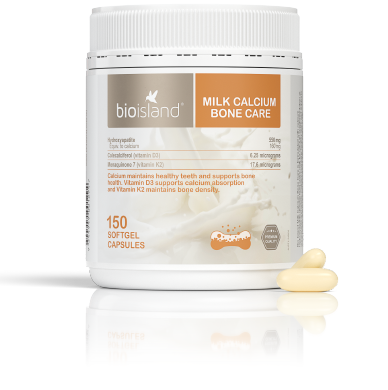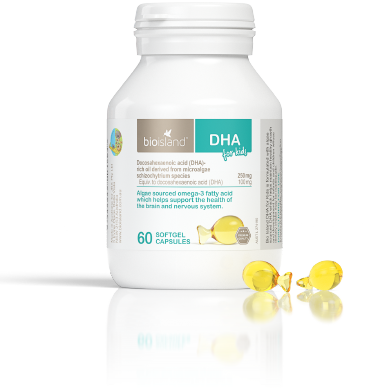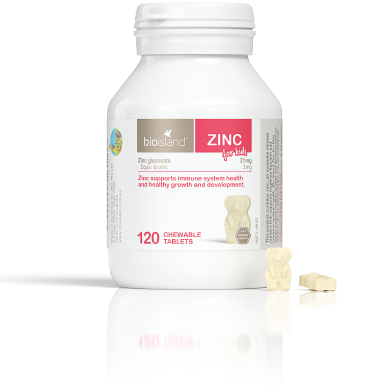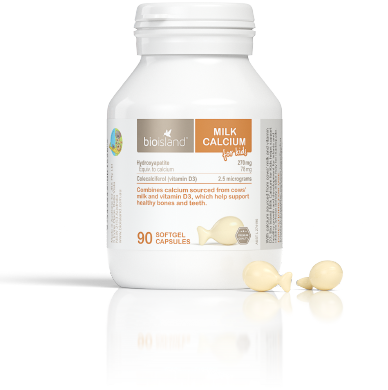
The special K, vitamin K2
Vitamin K’s main function is to activate key proteins within our body that serve important roles for all life stages.
By Bio Island Nutrition Team
Starring Roles
Vitamin K is an essential vitamin that is often overlooked and only really talked about when the nurse injects your newborn after birth to ensure healthy blood clotting.
Vitamin K’s main function is to activate key proteins within our body that serve important roles for all life stages. It contributes to a healthy heart, aides blood clotting, supports our immunity and is essential for bone health and development. It controls the proper utilization of calcium, ushering it into the bones and other necessary places in the body and keeps it from depositing into soft tissue, veins and arteries. It also works with vitamin D, as it ensures that the calcium which vitamin D helps us absorb is put to proper use and doesn’t end up in the wrong spot, which can cause organ issues and disease.
Lending a Helping Hand
When Vitamin K2 is activated in the body, Osteocalcin (a protein hormone found in bones) can carry calcium and other minerals out of the bloodstream and deposits it into the bones and teeth making it important for dental and bone health.
Again, vitamin K2 needs to be activated for the Matrix-GLA protein (a protein for calcium binding) This protein is responsible for protecting our blood vessels from calcification or ‘stiffness’, as it is calcium -binding, acts as an inhibitor of vascular mineralisation and plays a role in bone organisation in the body.
OK, Which K?
There are several different forms of vitamin K which all act differently within our body. The two main naturally occurring forms are vitamin K1 and K2.
Vitamin K1 or phylloquinone is found naturally in green leafy vegetables and makes up to 90% of the vitamin K we consume. That being said, studies have shown that this form of vitamin K has a lower bioavailability, with only 10% of it actually absorbed in our body.
K2 or menaquinone is a more absorbable form of vitamin K that is found in certain fermented foods, grass fed animal products and some also being created by human intestinal microbiota. To confuse us even more, there are several different subtypes forms of vitamin K2, and they are produced and act differently in our body. These subsets of vitamin K2 are known as MK-4 through to MK-13, named by the length of their side chain.
Absorption
Vitamin K2 is a fat-soluble vitamin, that is naturally found in animal foods that also contain fat. These animals can make vitamin K2 inside their bodies by converting K1 from the green plant foods they consume so the more vitamin K1 the animal has consumed, the higher their K2 levels making grass fed meat one of the best sources of K2.
But if animals convert K1 into the super valuable K2 then surely humans can too? Unfortunately, this isn’t the case. Humans don’t have the necessary enzyme to do this efficiently, so we need to be obtaining sufficient amounts of K2 directly from grass fed animal-derived foods to help with optimal nutrition and prevent deficiencies.
Although vitamin K is a fat soluble vitamin, the body stores very small amounts and can be rapidly depleted without sufficient daily intake. Even with limited storage capacity, our body can recycle vitamin K in order to reuse it multiply times through a specific cycle process, thus decreasing the reliance on daily intake and help preventing deficiency. But if levels continue to drop you could see signs of deficiency such as easily bruising, bleeding and impaired clotting.
Because of the difference in absorption and transportation to tissues vitamin K1 and K2 can have different effects on our health.
K1 is primarily transported to and used by the liver and the absorption process generally lasts a few hours whereas K2 has a longer blood circulation time. Something that can last for days and it is this big difference that allows K2 to be better used in tissues located throughout the body.
There is no test to determine if you have vitamin K deficiency without symptoms. Looking at your current diet can highlight whether you maybe lacking it from your diet.
Food sources of vitamin K2:
- Natto (Fermented soybean).
- Egg Yolks
- Grass fed beef
- Grass fed cheese
- Grass fed butter
So, we now know the importance and the benefits of getting more K2 in our diet include supporting our immunity, helping to reduce the risk of calcification of our arteries, atherosclerosis, cavities, tooth decay and kidney stones.
And remember, if your consuming your K2 through food it is always best to take with good dietary fats to increase its absorption.
This information does not take into account your personal situation and is general in nature. You should consider whether the information is appropriate for your needs and seek professional medical advice.
Always consult your healthcare professional before taking any supplements or if any concerns arise.




